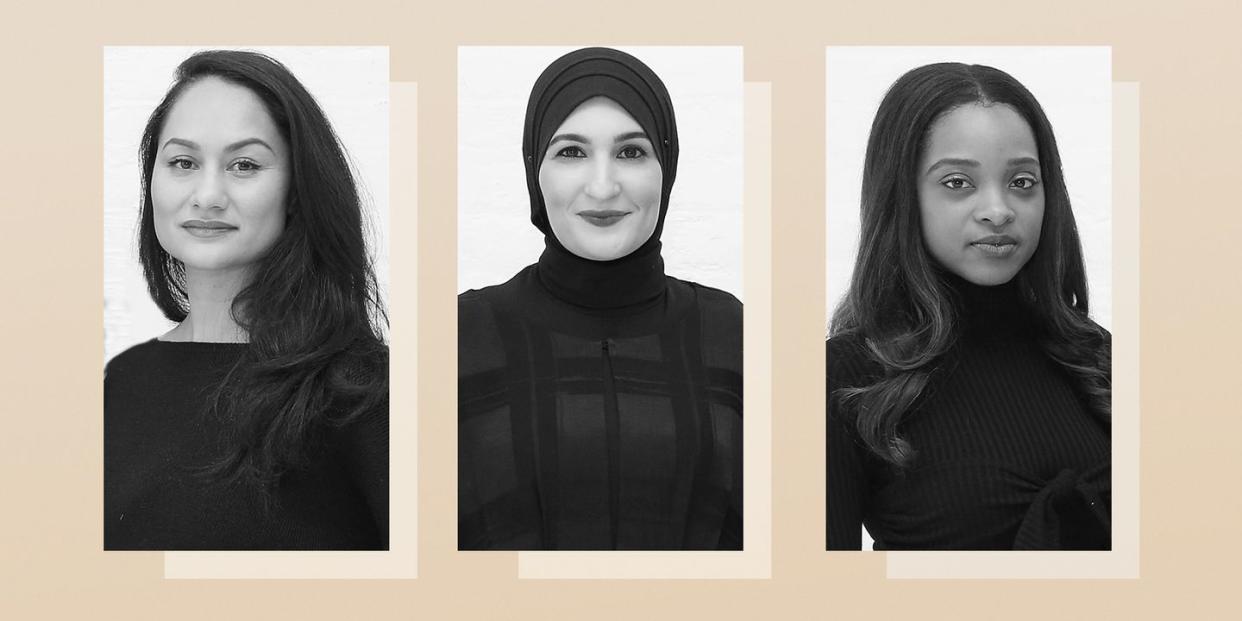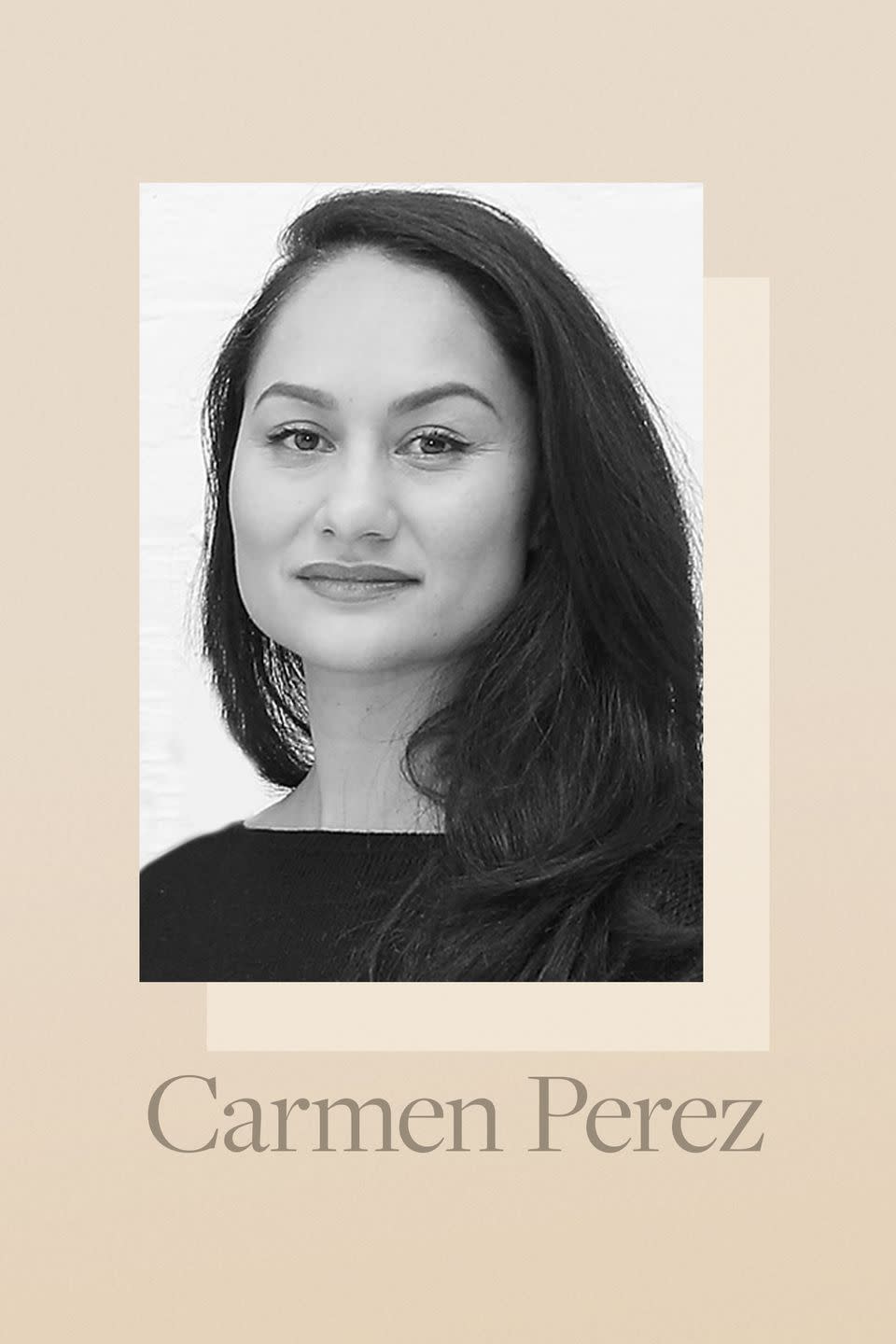Women's March Co-Chairs Talk Anti-Semitism, Accountability and Policy Agendas

The Women’s Wave is coming. On Saturday, January 19, the Women’s March will convene its main event in Washington, DC while sister marches are once again held across the country. The inaugural Women’s March, which followed President Trump's inauguration in 2017, is widely reported as the largest single day demonstration in American history. In 2018, the second Women’s March initiated Power to the Polls-an aggressive effort to transform the newly activated resistance into meaningful electoral victories for progressive candidates. With a record number of women sworn into Congress earlier this month, the third Women’s March is now turning to an ambitious policy agenda aimed at both the state and federal level. This Women’s Wave retains a commitment to training, organizing and executing acts of civil disobedience, as well as recruiting and supporting progressive candidates. This year it adds efforts to partner with local organizers to ensure progressive policy agendas are clearly articulated and elected leaders are held clearly accountable.
Now two years old, the Women’s March is decidedly out of infancy, but the growing pains of adolescence now grip the young movement. Less than a week from Saturday’s event, many news outlets are devoting more ink to the controversies surrounding the Women’s March than to the policy agenda outlined by it. Women’s March national leadership has been accused of anti-Semitism, prompting some local organizations to cancel coordinated events and several high profile sponsors, including the DNC, to choose not to partner this year.
As they have many times before, Women’s March co-chairs Tamika Mallory, Carmen Perez, and Linda Sarsour pressed pause on drama and planning to generously spend some time talking with me about the accomplishments of the past two years and their plans for the future.

What victories are you celebrating as you reflect on the two years since the first Women’s March in January 2017?
TAMIKA MALLORY: In 2017, a common complaint was “it means nothing if 5 million people protest, if they're not involved in any sustainable action.” But we have repeatedly shown this is a multifaceted and sustained movement. This work has opened space for new people to enter activism. We have seen so many people become active who have never before done this kind of work. For women of color this has been a moment when we are forcing every conversation to begin with the needs of the most disenfranchised and we have seen white women working to become more responsive. I am proud of this because the movement will take all of us.
LINDA SARSOUR: We have trained thousands of women in civil disobedience. In June 2018, we organized the largest women-led civil disobedience around the issue of family separation at the border. Hundreds of women were arrested in the atrium of the Senate building. This was not arbitrary action-we were able to equip these protestors with important skills. I’ve been doing this work 20 years and now it is coming fruition in ways I could only dream of before.
CARMEN PEREZ: I felt the same way watching all those women-so many of them women of color and LGBTQIA folk-sworn into Congress this month. The Women's March focused on Power to the Polls last year and thousands of women ran for office! We are well aware we are not the only people doing this work, but it is exciting to know that our efforts have inspired and supported women running for office locally and nationally.
LINDA SARSOUR: We started out in 2017, as the largest single-day demonstration in American history. Then in 2018, we strategically chose Las Vegas as our location for the Power to the Polls Women’s March. Today, Nevada is the first state to have a majority of women in the state legislature, and Jacky Rosen unseated Dean Heller. This is not narrow identity politics, the women elected in 2018 are progressive; many were not supported by the Democratic establishment during their primaries. They were able to win because their candidacies were based in the foundation of an active movement.

There have been bruising setbacks since January 2017. What have been the most difficult?
SARSOUR: The confirmation of Brett Kavanaugh to the Supreme Court stands out. It is a setback for many communities, but it was not a defeat for the movement. We resisted with the clear objective of having our voices heard. This was not any ordinary nomination and history must record that women stood up. We are proud our great-granddaughters will be able to look at what we did and know we stood up. This country heard our voices loud and clear. We enter some fights knowing it is a losing battle in the short term, but it is crucial to define the narrative.
You have faced direct criticism, specifically allegations of anti-Semitism. How do you respond?
MALLORY: It is important for people to understand my background and where I come from. I have been caricatured as someone who is an uncritical supporter of Louis Farrakhan and his every word and deed. That is not true. Trust and believe, Minister Farrakhan is clear that I do not agree with everything that he says.
For decades I have focused on anti-violence efforts in black communities. My son’s father was murdered. I am committed to working with deeply marginalized people to address the realities of gun violence. I often work with young black men in prisons. In this space I find myself working closely with people who have many attitudes, beliefs, and ideas that I disagree with, but the black experience is varied and I have to be open to all of it. To be effective when organizing people who have been discarded by society it does not make sense for me to throw away an organization-like the Nation of Islam-that has been very effective at reaching the hearts and minds of young black men to turning them away from violence.
Other people are obsessed with my relationship with Minister Farrakhan. I am obsessed with empowerment in the black community.
SARSOUR: It is important to remember accusations of anti-Semitism extend back to 2017, when I was invited to serve as the commencement speaker at the CUNY Graduate Center. There was a coordinated campaign by the alt-right. They protested, called on CUNY to disinvite me, and pushed a vicious news cycle. The irony here is that, as white Supremacists, they are anti-Semites themselves. Thank God, free speech and academic freedom prevailed. I had so much support-including from Jewish allies. My sisters Tamika and Carmen hosted a press conference in my defense.
I believe the solidarity and support shown to me stoked the anger of those who oppose my position on Palestine and my support for the BDS movement. It is important to understand this happened before any of this new public criticism.
When Tamika was singled out for her attendance at the Nation of Islam Saviour's Day event, we took it seriously. We were having sustained and honest conversations about Minister Farrakhan, about anti-Semitism, and about building relationships with the women inside the Women's March. We have issued multiple statements, unequivocally rejecting anti-Semitism.
We were all shaken to our core by the Tree of Life shooting. As women of color from targeted communities we wanted to show real solidarity. We raised and donated $218,000 for all 11 funerals of those who perished in that mass shooting at the synagogue. We believe in the aftermath of Tree of Life, some exploited real hurt and fear and trauma in the larger Jewish community.
PEREZ: In all of this I hear a larger cry-a valid plea to be seen and to be heard. We have been having intense, difficult, one-on-one conversations because we desperately need to really hear one another and build transformational relationships. We need to listen carefully to Tamika’s story. We also need to take seriously the pain expressed by some Jewish women. We must ask, how do we show up for one another without oppressing another person's community? Building an intersectional movement is not easy, but we must believe in it and work toward it. As we move forward we need to really think about how we could have these courageous conversations, allowing ourselves to show up with our stories and be fully open to hearing others. We can't just talk about community without pursuing the reconciliation that needs to happen.

What is the next step for the Women’s March?
PEREZ: Our work is a continuation of the Unity Principles that have guided us since 2017. The agenda does not come from the three of us; it was created by 50 organizations and individuals with deep policy expertise who we brought together over a four-week period. The Women’s Wave is about transforming our principles into policies: protecting the rights of immigrant women, ensuring pay equity, standing for LGBTQIA rights, disability rights, and ending state violence. And so those are just some of the issues that we have selected, and we've taken 50 organizations through this process, and this agenda will be released on January 19th at the Women's March.
SARSOUR: In 2019, we are entering the third part of our agenda: the policy platform and electoral accountability. Winning elections is important, but it is not enough. Now, we have work to do to ensure elected leaders are accountable to the movement that put them in office.
MALLORY: This is a model of accountability. We are not waiting for elected officials to tell us what they can do. We are working to ensure the people on the ground, who are most affected by problems and knowledgeable about issues are the ones who initiate the solutions.
As you move into the next phase of work, what are the motivating aspects of your lives which keep you engaged?
PEREZ: This is a very beautiful moment for me. I have a four-month-old son, so in many ways everything has shifted. I have been doing this work for 20 years and always striving to be selfless but now I feel the need to be selfish. A certain level of selfish is necessary to ensure I can protect my nursing son. It might mean having to get off an organizing call or say no to travel. At the same time, motherhood makes me more committed. I think of what we are wanting to achieve-to make politics a place where women have more space. All the challenges of trying to balance work, life, and new motherhood have made it even more apparent and urgent.
MALLORY: Carmen has a new baby, whereas Linda and I have grown kids. My son is 19 years old, but my son has always been the reason I do this work. He's always been my “why.” My son has a murdered father, and this means he endures many challenges, but his issues are similar to those his friends and many young black men face. Through him I have seen the dark corners where so many are struggling to preserve their humanity. That is where we must be present.
SARSOUR: And our children bear a cost for our work. I have two kids in college and one who is a a senior in high school. Right after the Tree of Life shooting I was visited by the New York F.B.I., who informed me of credible threats to my life. Of course I thought of family in that moment.
We are human, fallible. We are still growing in our leadership, but we are also putting our lives on the line in a real way. Everyone who is in a movement wants to be seen and wants to be heard; we also want to be seen and want to be heard. Even with the threats and even with the fear for myself and my family’s safety, I just want people to know it's worth it for us. And it's worth us doing this work. And we want to do it for everyone.
('You Might Also Like',)

